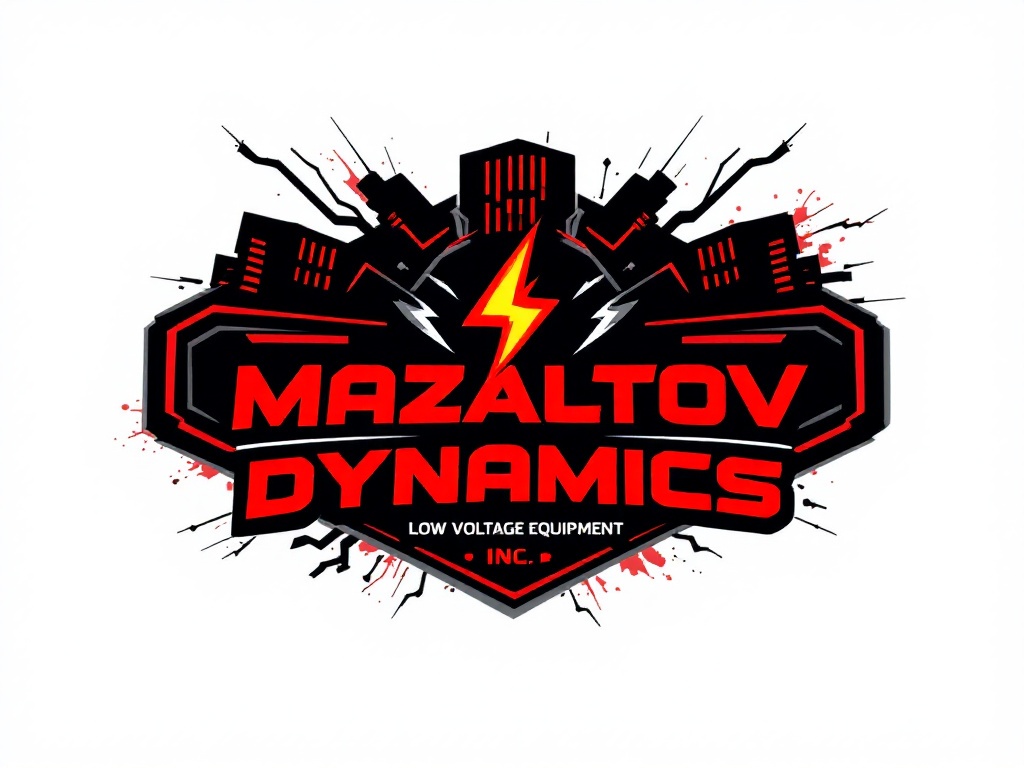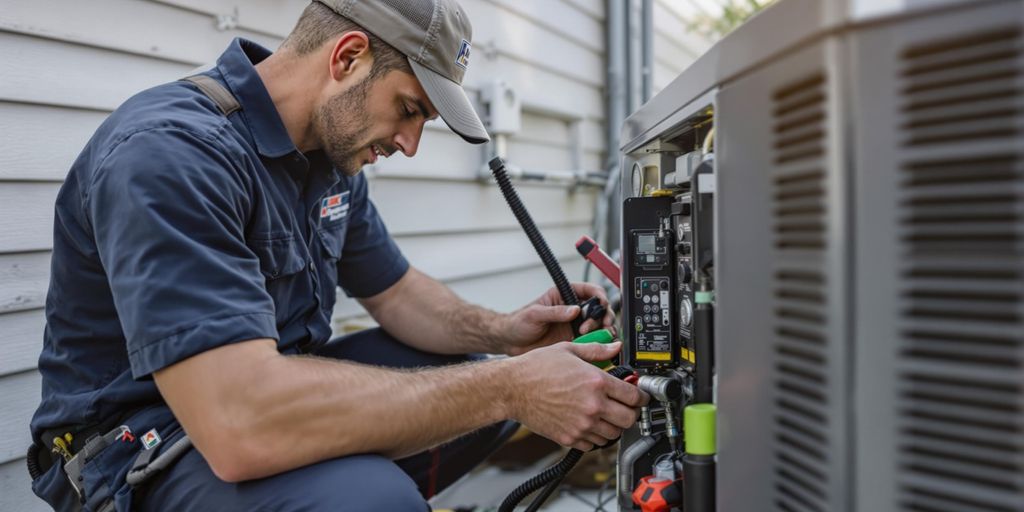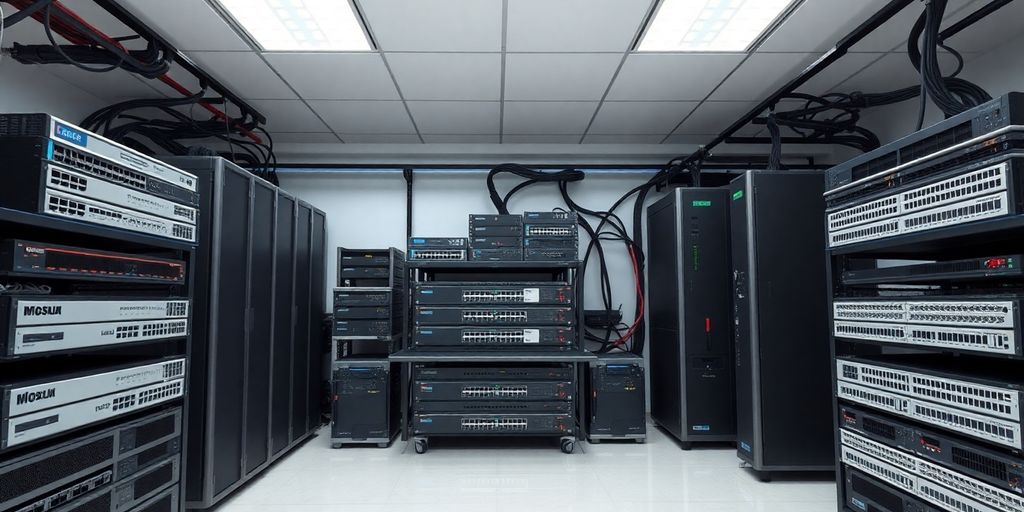Living in Las Vegas, you know how important it is to have a reliable generator. Whether it’s for your home or business, unexpected power outages can be a real hassle. That’s why having a good understanding of generator services is key. From picking the right model to knowing when to call for repairs, there’s a lot to consider. This guide will help you navigate the ins and outs of generator installation, maintenance, and repair in the Las Vegas area.
Key Takeaways
- Generators are essential for keeping the lights on during unexpected outages.
- Different types of generators and fuel sources are available to suit various needs.
- Proper installation requires careful planning, including site assessments and permits.
- Routine maintenance can prevent costly repairs and extend the life of your generator.
- Choosing a reputable service provider is crucial for reliable installation and repairs.
Understanding Generator Services
Types Of Generators
Generators come in a variety of types, each designed to meet specific power needs. Home standby generators are permanently installed and automatically provide power during an outage. They are often connected to a home’s natural gas line or propane tank. Portable generators, on the other hand, are versatile and can be used for various temporary power needs, such as camping or construction sites. Inverter generators are a newer type, offering quieter operation and more stable power output, making them ideal for sensitive electronics.
Common Fuel Sources
The fuel source for a generator is a crucial factor in its operation and efficiency. The most common fuel sources include:
- Gasoline: Easily available and great for portable generators, but can be costly and has a shorter shelf life.
- Diesel: Known for its efficiency and durability, diesel is often used in larger, commercial generators.
- Natural Gas: Convenient for home standby generators as it can be connected to the home’s existing gas line.
- Propane: Offers a longer shelf life and burns cleaner than gasoline or diesel.
Choosing The Right Generator
Choosing the right generator depends on several factors, including your power needs and budget. Consider the following when making your decision:
- Power Requirements: Calculate the total wattage of the appliances and systems you need to power. This will help determine the generator’s size.
- Fuel Availability: Consider what fuel sources are readily available in your area.
- Installation and Maintenance: Think about the ease of installation and the level of maintenance required. Some generators need more frequent servicing than others.
Investing in a generator is about ensuring your home or business remains operational during power outages. It’s not just about convenience; it’s about peace of mind. For instance, a transfer switch can automatically switch your home’s power source to a generator during utility power outages, ensuring that essential systems remain operational.
Installation Process For Generators

Site Assessment
Before installing a generator, a thorough site assessment is crucial. This involves evaluating the location to ensure it meets all safety and operational requirements. Factors like proximity to the main power source, ventilation, and accessibility for maintenance are considered. The site should be level and stable to support the weight of the generator.
Permitting Requirements
In Las Vegas, obtaining the necessary permits is an essential step in the installation process. This typically involves submitting plans to local authorities and complying with zoning laws and building codes. It’s important to check with your local municipality to understand the specific requirements as they can vary.
Installation Steps
- Foundation Preparation: Lay a concrete pad or prepare a solid base where the generator will be placed.
- Positioning the Generator: Place the generator on the prepared site, ensuring it’s level and secure.
- Electrical Connections: Connect the generator to the main electrical panel. This should be done by a licensed electrician to ensure safety and compliance with electrical codes.
- Fuel Connection: Connect the fuel source, whether it’s natural gas, propane, or diesel. This step must be handled with care to prevent leaks and ensure efficient operation.
- Testing and Commissioning: Once installed, the generator must be tested to ensure it operates correctly. This includes checking the automatic transfer switch and running the generator under load conditions.
Installing a generator is not just about placing it in your backyard; it’s about ensuring safety, compliance, and readiness for power outages. Choosing a professional service can make this complex process smooth and efficient.
For more details on how standby generators function and their installation process, check out this guide.
Routine Maintenance For Generators

Importance Of Regular Maintenance
Keeping your generator in top shape isn’t just a good idea—it’s a must. Regular maintenance ensures your generator is ready to kick in when you need it most. Over time, even the best generators can develop issues if not properly maintained, leading to unexpected failures during critical times. Regular check-ups can help catch small problems before they become big headaches, ensuring longevity and reliability.
Maintenance Checklist
Here’s a quick checklist to keep your generator humming:
- Inspect the fuel system: Check for leaks or blockages that could impact performance.
- Oil and filter change: Just like a car, your generator needs regular oil changes to run smoothly.
- Battery check: Ensure the battery is fully charged and terminals are clean.
- Test the generator under load: Simulate a power outage to make sure everything is working properly.
- Clean air filters: Dust and debris can choke your generator, so keep those filters clean.
Signs Your Generator Needs Service
Sometimes, your generator will give you hints that it needs some TLC. Look out for these signs:
- Strange noises: Unusual sounds might mean something is loose or worn out.
- Difficulty starting: If it struggles to start, it might be time for a battery check or fuel system inspection.
- Excessive smoke: This could indicate a problem with the fuel system or air filters.
Regular maintenance not only prolongs the life of your generator but also provides peace of mind knowing you’re prepared for any power outage.
Repair Services For Generators
Common Generator Issues
Generators are fantastic when they work, but like any machine, they can run into problems. Some common issues include battery failures, fuel problems, and worn-out parts. Batteries might not hold a charge, or they could be corroded. Fuel issues often arise from old or contaminated fuel, leading to a clogged system. Parts like belts and hoses wear out over time and need replacing.
When To Call A Professional
Knowing when to call in a pro can save you time and money. If your generator won’t start, makes strange noises, or emits smoke, it’s time to get help. Professionals have the tools and knowledge to diagnose and fix these issues safely. Don’t wait until a small problem becomes a big one.
Cost Of Repairs
Repair costs can vary widely depending on what’s wrong. Simple fixes like replacing a battery or cleaning the fuel system might cost less than a hundred dollars. However, more severe issues, like engine repairs, can run into the thousands. It’s important to weigh the cost of repair against the age and condition of your generator. Sometimes, investing in a new generator may be more cost-effective.
Regular maintenance can help avoid these costly repairs. Keeping up with routine checks and servicing can extend the life of your generator and ensure it’s ready when you need it.
For expert generator repair services in Las Vegas, consider Alaskan Plumbing, Heating & Air, who offer customized solutions tailored to your needs.
Choosing The Right Service Provider
Evaluating Experience
When it comes to selecting a generator service provider, experience is key. You want a company that has been in the field for a while and knows the ins and outs of generator systems. Look for providers who have a proven track record with installations and repairs. Experience often translates to reliability and efficiency. Companies like Pacific Electric, known for their expert generator installation services, are a good example of what to look for.
Checking Reviews
Reviews can tell you a lot about a service provider. They give insight into customer satisfaction and the quality of work. Check out verified reviews online and ask for references if needed. A company with a high number of positive reviews is usually a safe bet. Don’t just focus on the stars; read the comments to get a full picture of what to expect.
Understanding Pricing
Understanding the pricing structure of your service provider is crucial. Some companies charge a flat rate, while others may have an hourly rate. Make sure to ask about any hidden fees or charges that might pop up later. It’s also wise to get a detailed quote in writing before any work begins. This way, you won’t be surprised by unexpected costs. A transparent pricing policy is a sign of a trustworthy provider.
Selecting the right service provider is not just about price; it’s about finding someone who understands your needs and can deliver quality service consistently.
Emergency Generator Services
24/7 Availability
When it comes to emergency generator services, having 24/7 availability is non-negotiable. Power outages don’t wait for business hours, and neither should your service provider. A reliable service is always on standby, ready to respond at any hour, day or night. This ensures that you’re never left in the dark, literally and figuratively, when you need power the most.
Response Time Expectations
Speed is critical during an emergency. The quicker the response, the better the chances of minimizing disruption. Typically, a good service provider will have a structured plan to ensure swift action. This might involve:
- Immediate phone support to assess the situation.
- A dispatch team ready to mobilize within minutes.
- On-site technicians equipped with necessary tools and parts.
Preparing For Power Outages
Preparation is key to handling power outages effectively. Here are some steps to ensure you’re ready:
- Routine Checks: Regularly inspect your generator for any signs of wear or potential issues.
- Fuel Management: Ensure your generator has enough fuel and that the fuel is in good condition.
- Backup Parts: Keep essential spare parts on hand to address common issues quickly.
Being prepared can significantly reduce the stress and impact of unexpected power outages. It’s about having a plan in place and knowing who to call when things go south.
For those in need of reliable generator services, Legacy Electrical offers comprehensive solutions including free estimates and easy scheduling options. Their team is just a call or form submission away, providing peace of mind when you need it most.
Eco-Friendly Generator Options
Benefits Of Eco-Friendly Generators
Choosing eco-friendly generators is a smart move for both the environment and your pocket. These generators produce fewer emissions, helping reduce your carbon footprint. Plus, they often use less fuel, which means you save money in the long run. Eco-friendly options are not only about being green but also about being efficient and cost-effective.
Types Of Eco-Friendly Generators
There are several types of eco-friendly generators you can consider:
- Solar Generators: These use solar panels to convert sunlight into electricity. They’re great for reducing energy costs and are virtually silent.
- Wind Generators: Perfect for areas with consistent wind, these generators harness wind energy to produce power.
- Biomass Generators: These use organic materials like wood chips or agricultural waste to generate energy, making them a sustainable choice.
Government Incentives
The government offers various incentives to encourage the use of eco-friendly generators. These can include tax credits or rebates, making it more affordable to switch to green energy solutions. By taking advantage of these incentives, you not only save money but also contribute to a healthier planet.
Investing in eco-friendly generators is not just about going green—it’s about making a smart, sustainable choice for the future. With options like solar and wind, and support from government incentives, it’s easier than ever to make the switch.
Wrapping It Up
So, there you have it, folks. Navigating the world of generator services in Las Vegas doesn’t have to be a headache. Whether you’re setting up a new system, keeping it in tip-top shape, or fixing a hiccup, there’s a pro out there ready to lend a hand. With a bit of research and the right questions, you can find the perfect fit for your needs. Remember, a reliable generator isn’t just a luxury—it’s peace of mind. So, take the plunge, and keep your home powered up and ready for anything. Thanks for sticking with us through this guide, and here’s to a bright, uninterrupted future!
Frequently Asked Questions
What types of generators are there?
Generators come in various types, including portable and standby models. Portable generators are great for temporary power needs, while standby generators are installed permanently and start automatically during a power outage.
What are common fuel sources for generators?
Generators typically run on gasoline, diesel, propane, or natural gas. Gasoline is the most common, but diesel and propane are often used for larger or more permanent installations.
How do I choose the right generator for my home?
Choosing the right generator depends on your power needs and budget. Consider the wattage you need, the fuel type you prefer, and whether you want a portable or standby generator.
What is involved in the installation process for a generator?
The installation process includes assessing the site, obtaining necessary permits, and following specific steps to ensure safe and proper setup. It’s best handled by a professional to meet local codes and standards.
Why is regular maintenance important for generators?
Regular maintenance keeps your generator running smoothly and extends its lifespan. It helps prevent unexpected breakdowns and ensures your generator is ready to work when you need it most.
What should I do if my generator needs repairs?
If your generator shows signs of trouble, like strange noises or failing to start, it’s time to call a professional. They can diagnose the issue and perform necessary repairs to get it back in working order.



